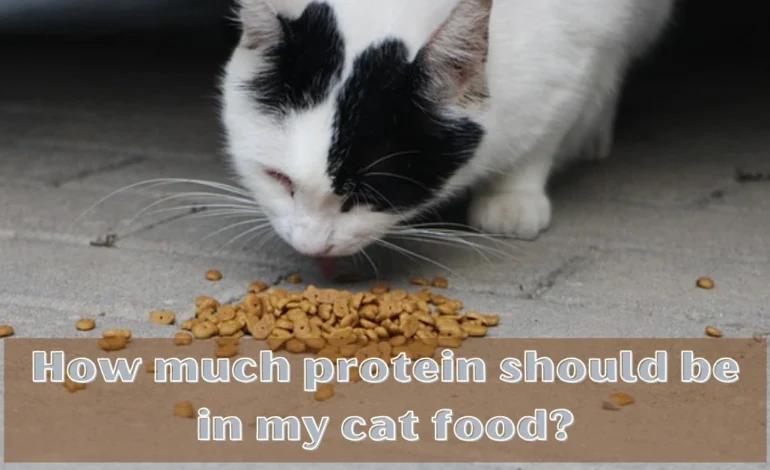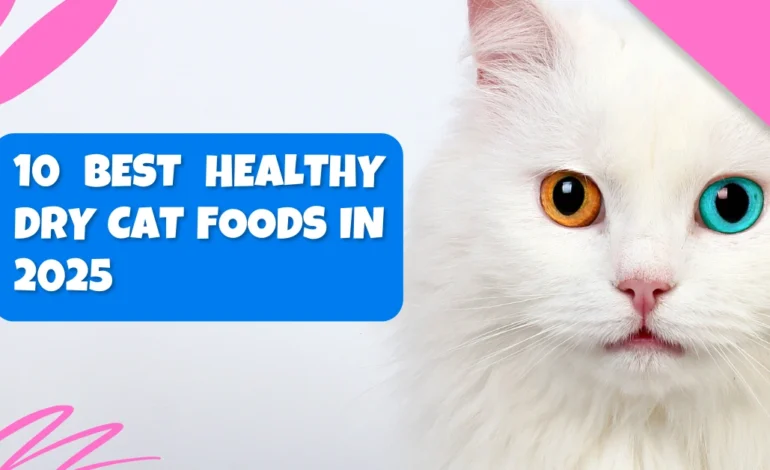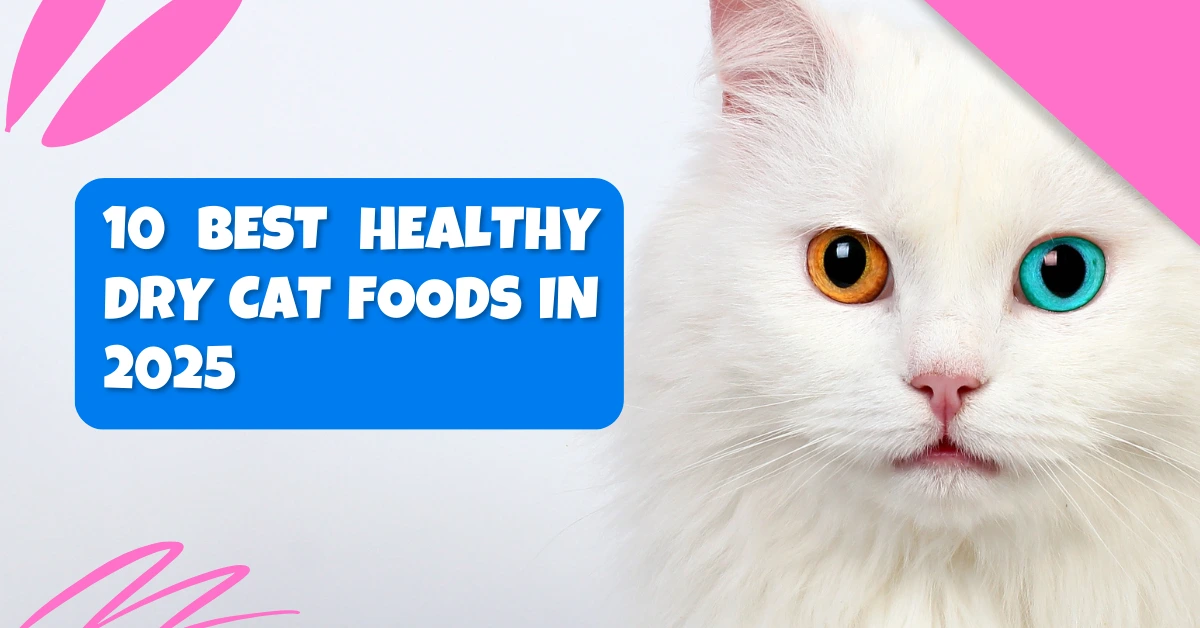How much Protein should be in my Cat Food?

Protein is an essential constituent of a cat’s diet, as it forms the basis of muscle development and provides support for immunity and general well-being. As obligatory carnivores, cats must have a high-protein diet to provide the energy and nutrients required by their gorgeous madams. Protein is necessary for muscle mass retention, production of enzymes, growth, and tissue repair.
An age-old question every cat owner asks themselves is, “How much protein should a cat have?” The answer does not come easy, as it depends on the age, activity level, and health status of the cat. Selecting proper amounts of protein in cat food becomes crucial because protein deficiency or excess may both lead to serious health complications. In this blog, we are going to unlock the secrets of the importance of protein in a cat’s diet and afford you crucial insights into selecting the right amount for your furry friend.
Why Is Protein Important for Cats?
Proteins are essential nutrients in the overall maintenance of good health in cats. As obligate carnivores, cats require a higher level of protein to serve different purposes, such as:
- Muscle Development and Maintenance
The protein should assist with building and repairing muscle, so that strength and mobility can be ensured. - Immune Function
Proteins support immune health through the production of antibodies and enzymes, which in turn help fight infections. - Energy Levels
Proteins help provide energy that keeps cats active and alert.
Essential vs. Non-Essential Proteins
- Essential Proteins:Must come from food. In this category are taurine and arginine, building-block proteins for heart function and metabolism.
- Non-Essential Proteins: Proteins that can be synthesized within the body of a cat, but still form a part of a cat’s overall health.
Balance of protein is absolutely crucial to have a healthy, fit cat.
How Much Protein Do Cats Need?
| Life Stage | Recommended Protein (%) | Key Considerations |
| Kittens (up to 1 year) | 30-35% | High protein for growth and development. |
| Adult Cats (1-7 years) | 25-30% | Maintenance of lean muscle mass and energy. |
| Senior Cats (7+ years) | 20-25% | Reduced activity, but still need protein for muscle maintenance. |
| Pregnant or Nursing Cats | 35-40% | Increased protein for both mother and kittens. |
How Much Protein Does Cat Food Have?
Here’s a table summarizing the protein content in different types of cat food and the importance of high-quality protein:
| Type of Cat Food | Protein Content | Protein Source | Why It’s Important |
| Dry Cat Food | 30-40% | Animal-based & Plant-based | High in protein for energy, muscle development, and overall health. |
| Wet Cat Food | 7-12% | Animal-based & Plant-based | More moisture; protein density (per calorie) is often higher. |
| Animal-Based Protein | Complete proteins (e.g., chicken, turkey, beef) | High-quality protein sources | Provides all essential amino acids, highly digestible, supports muscle and immune function. |
| Plant-Based Protein | Incomplete proteins (e.g., soy, peas) | Lower-quality protein sources | Lacks essential amino acids, harder to digest, should supplement, not replace animal proteins. |
Steps to Calculate the Ideal Protein Intake:
- Consult Your Vet: Seek professional advice on your cat.
- Consider Age and Activity Level:
- Kittens need higher protein (35-45%) for growth.
- Adult Cats require 30-40% protein to maintain health.
- Senior Cats may need slightly less protein (30-35%), depending on health.
- Active Cats require more protein (35% or higher) for muscle and energy.
- Check Protein Content on Labels: Ensure the protein is animal-based (chicken, turkey, beef) for better digestibility.
- Adjust for Health Needs: Cats with medical conditions like kidney disease or obesity may need customized protein levels.
Choosing the Best Protein for Your Cat’s Diet
Animal-Based Protein Sources Protein from animals like chicken, turkey, beef, and lamb are the safest for cats, as they provide every single one of the essential amino acids required for good health. Cats are obligate carnivores, which means they need to have animal protein in their diet to survive. Animal-based proteins are best digested into usable forms by cats, along with muscle development, energy production, and immune enhancement. These proteins are capable of providing essential nutrients, such as taurine, needed for a healthy heart and good eyesight.
Plant-Based Protein Sources This means that while cats can indeed digest plant-based proteins, they are not as nutritionally complete as those found in animal proteins. The sources of plant proteins that cats may consume include soy, peas, and rice; however, they may not deliver all the amino acids essential for the optimum health of felines. The possible ingredient may be present as small quantities of fillers or as proteins supplementary in many commercial foods. Nevertheless, they should not supplant proteins from animal sources. If too much is given to vegetable proteins, deficiencies in factors crucial to the cat’s health could arise.
Conclusion
Thus, one has to be careful in deciding the required amount of protein in a cat’s food in consideration with the general health and well-being. Proteins build muscles, energy levels, and immune system functions and are particularly important for growth, maintenance, and recovery. Always consider factors like your cat’s age, activity level, and important health needs when choosing cat food, as these factors all help maintain a proper balance of protein.
Check out the high-protein cat foods available at Meow Care Hub for your cat’s health and nutrition!
FAQs
Q1: How much protein should a cat have in its food?
- The protein needs of a cat vary greatly over its lifetime. An adult cat will require an amount of total protein in the amount of 25-30% of its daily diet while a kitten will require more due to its higher growth (30-35% protein). Older cats may require around 20-25% protein.
Q2: How much protein does a cat need in a day?
- The levels of protein that a cat will require on an everyday basis will vary according to age, size, and the activity level that it maintains. In general, a healthy adult cat will require 2-4 grams of protein per pound of body weight per day.
Q3: How much protein does cat food have?
- This varies widely, between 20-40%. This is dependent mostly on the type of food (wet or dry) and the brand. However, always refer to the food label to see if the protein content is adequate for your cat.
Q4: How much protein should be in cat food for kittens?
- Kittens require more protein, around 30-35%, for growth, development, and liveliness.
Q5: Can I feed my cat food with low protein content?
- Cats will not do well on low-protein diets-a particular caution should be taken if the cat is active or still under one year of age. Since protein is vitally important in maintaining muscle mass, energy levels, and overall health, they may not fare well on low protein diets.
Q6: How can I tell if my cat is getting enough protein?
- Healthy cats will display the following signs: a healthy and shiny coat as well as active behaviors and strong muscles. Weight loss, reticence, and diminished coat quality may signal a need for increased protein in the diet.
Q7: Does the protein quality matter in cat food?
- Yes indeed! It is required that one realizes the quality of proteins matters. In essence, animal-based proteins are usually far better than plant-based proteins, as cats are obligate carnivores.





